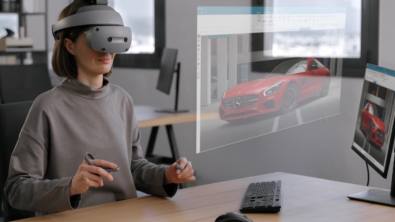Energy industry using digitalization and diverse industries to address a systems engineering methodology – part 4

Our fourth summary blog of the Energy Transformation podcast series discusses systems engineering in the Energy & Utilities (E&U) industry. Our speakers, John Lusty, Global Lead for Industry Marketing at Siemens Digital Industries Software, and John Nixon, Senior Director of Energy and Utilities at Siemens, focus on how systems engineering is changing the way businesses and project teams configure their technology, work practices, project start, and delivery of a quality project in less time for less cost.

Multi-discipline understanding require systems approach
Reports by organizations like McKinsey or Price Waterhouse show a lag in productivity between what appears in discrete industries like aerospace, automotive, industrial machinery and heavy equipment, and the energy sector. And some of the challenges in the field include multiple contractors, engineers, procurement, and construction companies working on mega-projects. These projects have interface agreements between them but without a defined scope. So, there is an incredible challenge to having a multi-discipline understanding of change management in the design and the field. Consequently, a lot of rework goes on when you don’t have a systems approach in these environments.

In the past decade, there has been a tremendous investment in digitalization. Fortunately, we are beginning to see the effects in the field. There is now a systems approach to executing a project, from design through execution to operations. In trying to reduce errors or omissions in the design process, it demands a systems approach in the future. Increasing human resources or person-hours does not solve the problem. It is essential to proactively address change, which necessitates a multi-discipline approach using a systems mindset to execute the design, construction, and operations.
Value of a Digital Lifecycle Approach
The past few years have posed a volatile environment impacting the energy industry. Using traditional, document-driven methods requires manual effort to understand requirements from an industry and customer standard. Additionally, with exponential growth in specifications, data is gathered as part of this intense design and construction process and through commissioning and operations. So, this volatile market demands a different approach away from document-driven methods that are slow and inefficient. Algorithmic-driven trading environments require a system or algorithmic approach to conduct business. However, this methodology addresses a speed of business that a document-based, manually intensive climate cannot support.
Therefore, the core value is a Digital Lifecycle Excellence approach, where all that data represents the value across the lifecycle. For example, in operations, decisions regarding design and construction are not always considered. However, responding to market competitiveness, volatility, and ESG requires substantial innovation for knowledge workers to process. Digital Lifecycle Excellence brings all that information together to improve the work process, creating opportunities and best positions to solve future issues. It is an enabler. And as we move away from document-driven methods to data-driven approaches, cross-pollination from other industries will reach outside the industry. Therefore, aerospace and defense or automotive companies are hired into an energy company and can assess the process and recognize the possibility of applying a systems engineering approach to this new industry.
There is also a real arc of Capital Asset Lifecycle Management (CALM), transforming this industry and all the sub-segments of this industry. So, there is an excitement to serve this industry as we make those investments here at Siemens, making deep investments and bringing efficiencies from these discrete industries into the energy space.
Learn more by listening to the podcast.
Xcelerator, the comprehensive and integrated portfolio of software and services from Siemens Digital Industries Software, helps companies of all sizes create and leverage a comprehensive digital twin that provides organizations with new insights, opportunities and levels of automation to drive innovation.
For more information on Siemens Digital Industries Software products and services, visit siemens.com/software or follow us on LinkedIn, Twitter, Facebook and Instagram. Siemens Digital Industries Software – where today meets tomorrow.


